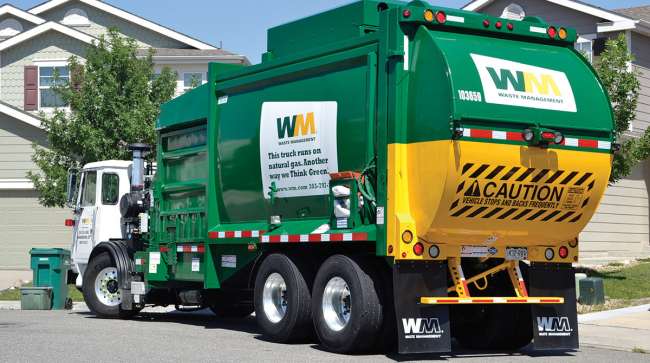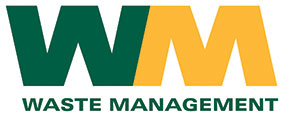Staff Reporter
FMCSA Grants Waste Management HOS Exemption

The Federal Motor Carrier Safety Administration has granted Waste Management Holdings Inc. an exemption from certain hours-of-service rules.
According to a notice published in the Federal Register on Oct. 25, the exemption relaxes the requirement that shorthaul drivers using the records-of-duty status exception return to their starting location within 12 hours of coming on duty.
FMCSA’s exemption will allow drivers operating trucks to collect waste and recyclables to return to their starting point within 14 hours instead of 12.

“FMCSA has analyzed the exemption application and the public comments and has determined that the exemption, subject to the terms and conditions imposed, will likely achieve a level of safety that is equivalent to, or greater than, the level that would be achieved absent such exemption,” the Federal Register document states.
This exemption applies to about 18,000 Waste Management drivers in 84 separate subsidiaries. According to the document, these drivers occasionally cannot complete their work day within 12 hours.
Furthermore, Waste Management states in the document that ELDs “delay and distract” drivers who make frequent stops to collect trash because the devices demand interaction. The company claims that drivers who collect trash have to interact with ELDs “hundreds if not thousands of times a day.” The document also states that ELDs in trash trucks hinder safety more than they help.
FMCSA-WM-2018-23335 by Transport Topics on Scribd
Waste Management compares the work of trash truck drivers with that of other shorthaul drivers who spend a lot of time “conducting nondriving duties,” such as truck operators in the ready-mixed concrete industry and asphalt-paving business.
The company maintains a fatigue management program, which uses video to study events that indicate driver fatigue, such as aggressive braking, steering or acceleration.
Waste Management submitted a request for exemption from this requirement in July. The application garnered a slew of public comments, including supporting statements from groups such as the Owner-Operator Independent Drivers Association and the National Waste and Recycling Association. Opposing comments were filed by the International Brotherhood of Teamsters and the Advocates for Highway and Auto Safety.
“The application fails to justify the need for the exemption, provide an analysis of the safety implications of the requested exemption or provide information on the specific countermeasures to be undertaken to ensure that the exemption will achieve an equivalent or greater level of safety that would be achieved absent the exemption,” the Advocates group said in a joint comment with the Trucking Alliance for Driver Safety and Security.
Waste Management is one of many groups that has requested exemption from HOS rules. In September, the American Concrete Pavement Association requested exemption from the 30-minute rest-break provision and the shorthaul requirement. Four environmental service companies on Aug. 9 petitioned for a five-year exemption from HOS regulations for drivers involved in providing direct assistance in environmental emergencies.
FMCSA leaders have exhibited willingness to listen to industry representatives’ concerns over HOS rules. The agency hosted a listening session Oct. 10, the fifth in a series of related talks, to discuss potential changes. Participants had the opportunity to discuss the shorthaul HOS limit, the HOS exception for adverse driving conditions, the 30-minute rest-break provision and the split sleeper-berth rule to allow drivers to divide their required rest time in the sleeper berth.
FMCSA Administrator Ray Martinez will lead sessions related to HOS regulations at American Trucking Associations’ Management Conference & Exhibition in Austin, Texas, Oct. 27-31.

